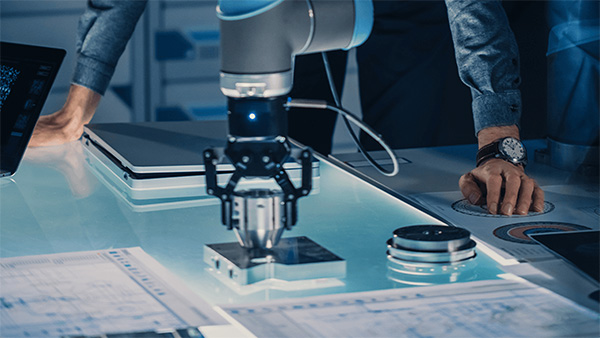CIOs in manufacturing need to accelerate their adoption of industry cloud solutions to reap the benefits of AI.
By Arturo Buzzalino, Vice President of Products, Innovation & Design, Epicor
Manufacturers now face unprecedented challenges, from incessant supply chain disruptions to rising energy costs to wars in Europe and the Middle East.
What’s more, a new report from Deloitte and The Manufacturing Institute, estimates that the skills gap in manufacturing could leave 2.4 million positions unfilled by 2028, potentially costing the U.S. economy $2.5 trillion.
All this underscores why manufacturers must adopt advanced technologies that can automate manual, repetitive and/or dangerous jobs and find ways to augment essential human workers and boost their productivity and value.
Keeping pace with technological advancements and managing complex deployments aren’t trivial matters, but manufacturers must embrace truly radical digital transformation if they want to remain competitive.
The good news is coming in the form of AI-powered industry cloud solutions that represent a monumental shift in industrial technology.

Industry cloud platforms have been gaining traction for several years. Unlike general purpose cloud systems, industry cloud platforms are tailored to meet the highly-specific needs and workflows of various vertical industries.
Industry cloud platforms have sprung up to meet the needs of financial services firms, healthcare companies, manufacturers, retailers, the automotive industry and many other verticals. Gartner projects that by 2027, more than 70% of enterprises will use industry cloud platforms to accelerate their business initiatives, up from less than 15% in 2023. And 68% of cloud decision-makers in the production and manufacturing industries ranked the adoption of industry cloud platforms as a high priority in Forrester’s 2023 Infrastructure Cloud Survey.
On their own, industry cloud platforms offer companies a plethora of benefits — specialized tools and technologies, enhanced security and compliance, and streamlined releases amongst them. Still, it’s relatively early days for industry cloud platforms, and CIOs in some industries have questioned the ROI.
But it’s the combination of AI and industry cloud that is the game-changer. And it should have every CIO in manufacturing accelerating their adoption of industry cloud platforms.
Take Enterprise Resource Planning (ERP) software as a case-in-point. ERP software has been around for decades, coordinating and managing companies’ core business processes. It is the definition of mission-critical business software. Today, more and more manufacturers are running their operations on highly-specialized, industry cloud ERP platforms.
But ERP systems traditionally have necessitated an elite cadre of administrators entrusted with access privileges to retrieve data or change workflows within the system. Now consider the possibilities when you integrate AI into industry cloud platforms built for highly specialized manufacturing processes.
While there are many understandable and legitimate concerns about the potential negative impacts of AI on society and the workplace, in the manufacturing sector specifically, I’d argue these concerns are overstated. In fact, for an industry facing a potential dearth of nearly two million jobs in just a few years, there may be no industry that needs the benefits of AI more than manufacturing.
In a survey by my company, Epicor, of 600 US factory or plant workers, more than half said they’d take a pay cut to work for a more tech-driven factory, and 83% who had the opportunity to use new tools or technologies said they worked more efficiently as a result.
Bottom line, more and more manufacturing workers understand that tech and automation are integral to the future of the manufacturing industry. And increasingly, they see advanced tech not as a threat to their livelihoods, but rather as integral to upskilling and advancing their careers.
As for manufacturing leaders, they too should see AI + industry cloud as an imperative — not only to address a dire labor shortage, but also as the single most strategic — and fastest — pathway to drive the mainstream adoption of AI throughout the enterprise and reap its many benefits.

About the Author:
Arturo is Vice President of Products and Innovation at Epicor, a leading ERP software company, overseeing the management of all manufacturing products while also leading the company’s innovation and design organizations. He is a visionary leader with a rich background in data science and artificial intelligence (AI). With a decade of experience at SAP Labs, he was instrumental in incubating cloud and Data as a Service (DaaS) products, including the launch of SAP’s inaugural DaaS product.
A warm welcome to our guest Didi Caldwell, CEO of Global Location Strategies (GLS) and one of the world’s top site selection experts. With over $44 billion in projects across 30+countries, Didi is reshaping how companies choose where to grow. Here she shares insights on reshoring, data-driven strategy, and navigating global industry shifts.